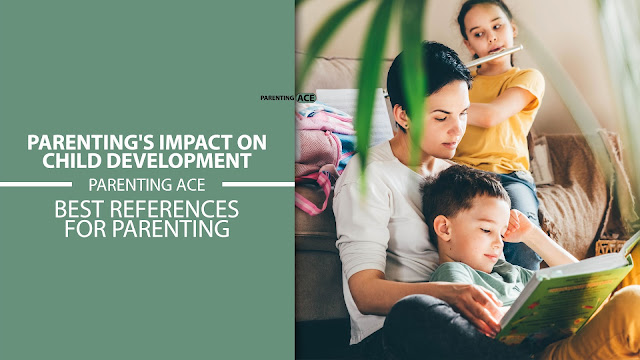Shaping Personality: The Impact of Parenting on Child Development
In the intricate tapestry of child development, parenting stands as the master weaver, intricately shaping the fabric of a child's personality. From the earliest moments of infancy to the complexities of adolescence, the influence of parental guidance and nurturing is profound. In this blog post, we embark on a journey to explore the profound impact of parenting on shaping the unique personalities of children. Delving into the interplay of parenting styles, nurturing environments, and effective communication, we uncover the intricate dynamics that mold the essence of who a child becomes. Join us as we unravel the complexities of this fundamental aspect of parenting and discover how each interaction, each decision, and each moment shared between parent and child leaves an indelible mark on the canvas of personality development.
 |
| Parenting's Impact on Child Development |
Parenting is a profound journey filled with responsibilities, joys, and challenges. One of the most significant aspects of parenting is its influence on shaping a child's personality. From infancy to adulthood, parents play a crucial role in molding their children's character, values, and behaviors. In this article, we delve into the profound impact of parenting on shaping personality and explore how different parenting styles and practices contribute to a child's development.
Understanding Personality Development
Personality encompasses a combination of traits, behaviors, and emotional patterns that define an individual's unique identity. It is shaped by various factors, including genetics, environment, and experiences. During childhood, parents serve as primary influencers in shaping their children's personalities through their interactions, guidance, and modeling of behavior. As children grow, their personalities continue to evolve based on ongoing interactions with their environment, including peers, teachers, and societal influences.
Parenting Styles and Personality
Psychologists have identified different parenting styles, each with distinct approaches to discipline, warmth, and control, which significantly impact a child's personality development.
- Authoritative Parenting: Characterized by high levels of warmth, responsiveness, and reasonable control, authoritative parenting fosters independence, self-discipline, and social competence in children. Children raised by authoritative parents tend to exhibit traits such as resilience, self-confidence, and empathy.
- Authoritarian Parenting: In contrast, authoritarian parenting emphasizes strict discipline, obedience, and control with limited warmth or responsiveness. While children raised in authoritarian households may demonstrate obedience, they may also exhibit traits such as anxiety, low self-esteem, and rebellious behavior due to the lack of autonomy and nurturing.
- Permissive Parenting: Permissive parenting involves high warmth and responsiveness but minimal control or discipline. Children raised in permissive households may lack self-discipline, exhibit impulsive behavior, and struggle with boundaries, as they are accustomed to having few rules or consequences.
- Uninvolved Parenting: Uninvolved parenting, characterized by low levels of warmth, responsiveness, and involvement, can have detrimental effects on a child's personality development. Children raised by uninvolved parents may experience feelings of neglect, insecurity, and low self-worth, impacting their emotional and social development.
Impact of Parenting Practices
Beyond parenting styles, specific practices and interactions between parents and children profoundly influence personality development.
- Nurturing Environment: Providing a supportive, nurturing environment where children feel loved, valued, and secure fosters positive self-esteem, resilience, and emotional well-being.
- Effective Communication: Open, honest communication between parents and children promotes trust, empathy, and healthy emotional expression, laying the foundation for strong interpersonal relationships and effective problem-solving skills.
- Consistent Discipline: Setting clear expectations, boundaries, and consequences for behavior helps children develop self-control, responsibility, and respect for authority, contributing to their moral and ethical development.
- Role Modeling: Parents serve as primary role models for their children, demonstrating values, attitudes, and behaviors that influence how children perceive and interact with the world around them.
Parenting plays a pivotal role in shaping a child's personality, influencing their values, beliefs, and behaviors throughout their lives. By understanding the impact of different parenting styles and practices, parents can create nurturing environments that promote positive personality development in their children. Through warmth, guidance, and consistent support, parents empower their children to thrive emotionally, socially, and intellectually, laying the groundwork for a fulfilling and meaningful life journey.




